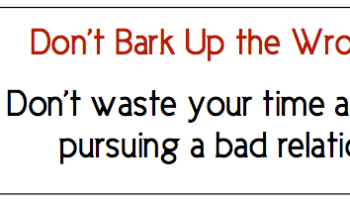We can have many different school systems, as long as they all teach ways to acquire relevant skills and knowledge.
"Educational reforms must be driven by those who want to ensure that our future generations are able to be relevant in a global environment, earn good incomes and contribute to the nation’s prosperity."
THE Johor Sultan’s recent proposal for there to be a single school system for the country became the latest talking point amongst teachers last week. The Sultan’s proposal, among other things, entails the use of English as a medium of instruction.
In the public space, the discussion went off tangent straight away. Some were quick to defend the present system because they said we need to preserve the vernacular schools, which in turn are meant to ensure the preservation of Chinese and Indian culture and their respective mother tongues.
These supporters seemed to suggest that without vernacular schools, the people of these respective ethnic groups would lose their cultures and languages altogether.
There are some primary-level vernacular schools in rural parts of India that are intended for the continued use of their mother tongue. However, students have the flexibility of transferring to English-medium schools at the secondary level. This flexibility enables Indian education to be largely singular in its system, with a wide use of English as medium of instruction.
Unfortunately, our view of vernacular schools is tied to a political idea: that politicians of a particular ethnic group are required to defend these vernacular schools – regardless of their actual usefulness and value to their communities – as an indicator of their care and concern for the welfare of their communities. Education becomes a political tool.
Middle-class parents want the present system to be retained because the approach taken by successive Ministers of Education has essentially been to privatise education. Hundreds of licences for private schools have been issued, and even international schools are now open to locals with the means to afford them for their children.
So this wealthy group does not mind the present system because for them at least, education is now isolated from the mainstream ; and they are thus able to have what some of them believe to be a superior method of teaching children, and imparting the right kind of education.
Others who want a single system insist on vernacular schools being abolished, and in their place “a Malay (national) centric system” where schools can impart lessons on loyalty and patriotism with more vigour. They argue that we still need to instil patriotism, unity and racial harmony in our pupils and students.
They believe that a sufficient amount of indoctrination is necessary to turn our young into “true Malaysians”, while religious classes and adequate prayer halls will shape Malay children into good Muslims (since we now seek to be Syariah-compliant in everything we do).
We can safely say that under the present political setup, no government will dare abolish vernacular schools. So if national schools become more “Malay” and more Islamic, we can expect more vernacular schools to mushroom all over the country, keeping pace with private schools (local and international ) as they seek to attract ever-larger numbers of students whose parents have “no confidence” in the national school system.
We can have as many systems in our schools as we like, as long as the “one” overriding component in any system that matters is the idea that schools are for teaching students to acquire deep knowledge and skills relevant to the present world.
Schools of the 21st century do not exist primarily to build national unity, to foster narrow nationalism, or to protect any mother tongue. They are not designed to make you “a better person” or religious and sin-free, for that matter.
Today’s education is primarily about having the right skills to get jobs, as the effect of globalisation and new artificial intelligence will be taking a lot of our work away, and may ultimately make us all redundant if we are not prepared. In that context, education must be about giving our children relevant, useful and productive skills.
If the characteristics of the national school were to be modelled on those found in Switzerland, Finland or Singapore, for example, (with some modifications, of course), that would be acceptable because their focus is on producing students with skills that are useful in this present environment.
The diversity of available subjects, with options given to parents to decide on issues such as language, can accommodate different aspirations without compromising on quality or the schools’ central mission.
I recently met a Finnish teacher in Helsinki who was proud to tell me that almost all Finnish students speak three European languages, although there is no compulsion to do so in their school system.
According to this teacher, they have to be multilingual because then their job opportunities become much wider. Necessity always produces better education systems and methods.
Mother tongues can be kept alive through their regular use in a modern education system, without having vernacular schools. Let’s face it: having a poor and mediocre Tamil school system with low enrolment will not do much to help preserve the language and culture of the Tamil community. The only people who benefit are Tamil politicians.
Today’s education produces well-rounded children who will get jobs. It’s when they have no jobs that we worry, no matter how well they can speak their mother tongue.
Educational reforms must be driven by those who want to ensure that our future generations are able to be relevant in a global environment, earn good incomes and contribute to the nation’s prosperity.
 By Zaid Ibrahim All kinds of everything
By Zaid Ibrahim All kinds of everythingFormer de facto Law Minister Datuk Zaid Ibrahim (carbofree@gmail.com) is now a legal consultant. The views expressed here are entirely his own.
Related posts:
Those who oppose vernacular schools ... are driven by their desire
to produce a society moulded in a way that they desire. Please keep e...


 Malaysian school systems: http://www.globalchildhoods.net/index.php?page=malaysia
Malaysian school systems: http://www.globalchildhoods.net/index.php?page=malaysia


